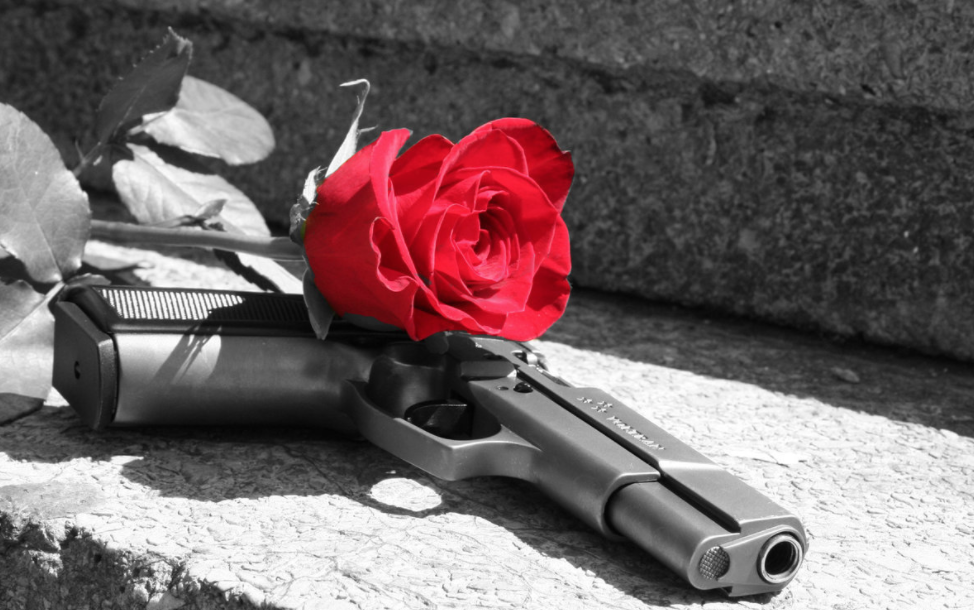With Lorde’s recent “unintentional” Whitney Houston snafu of bathtub insensitivity, it doesn’t hurt to revisit her 2013 cut, “Glory and Gore” with a fresh pair of eyes and ears more attuned to offensiveness and formerly recondite knowledge. Because that’s what living in post-2017 is all about.
Apart from the buildup to a chorus that says it all–“glory and gore go hand in hand, that’s why we’re making headlines”–Lorde’s portrait of something resembling a world ravaged by apocalyptic times (in a bit of an homage to Hunger Games) and a fight for that which was once deemed basic human rights is all too relevant to the America of now, particularly in the wake of Parkland’s carnage. With the uproar now associated with the “incident” has come an equally as forceful battle cry in terms of rallying for stricter gun control (particularly on the part of a previously “dormant” Generation Z) and being met with blank stares and batting eyelashes by the NRA. Accordingly, Lorde’s description, “And the cry goes out/They lose their minds for us/And how it plays out/Now we’re in the ring, and we’re coming for blood” is all too applicable to the students affected by one of the most nefarious school shootings in the U.S.’ robust history of them, forced to act as any sleeping beast would after being poked so egregiously. And yet, the NRA also fits the bill of coming for blood, as its many non-splendored cultists would rather die than ever have someone pry their precious substitute for an appendage out of their hands.
So it goes that violence begets violence, and anger more anger. But to the point of Lorde’s lyric, “You could try and take us/But we’re the gladiators/Everyone a rager/But secretly they’re saviors,” each sect on opposite sides of the line sees themselves as being in the right, as the “savior” Lorde speaks of. To the left, the school shooter prototype à la Nikolas Cruz is convinced that his savagery is somehow for a greater cause–one too arcane to the non-sociopathic brain–and to the right the advocates for peace and safety (although occasionally “advocacy” can turn rather ugly in its violent implications as well) are willing to do whatever it takes to achieve the unachievable: recompense for the lives that were taken.
As Emma González’s now famous “We call B.S.” speech and founding of Never Again MSD (the MSD referring to the abbreviation for her high school) organization prove, “We gladiate, but I guess we’re really fighting ourselves/Roughing up our minds so we’re ready when the kill time comes.” The kill time, in this case, being the death of complacent acceptance of politicians and their stock condolences when a gun-related tragedy occurs. As it is so often wont to do; the statistic of eighty-six U.S. teenagers being killed by gun violence in the fifty days since the Parkland shooting adds only further concrete evidence of a sinister and seemingly unshakeable problem. The problem of those who feel weak wanting to get empowered by the capabilities of a firearm at any cost, human life a seemingly nominal price to pay for the glory of gore and its associated headlines.
Thus, Lorde asks earnestly and unwittingly of those school shooters (both of the past and potential future) and their subsequent, inevitable imprisonment (that is, when they don’t off themselves right after their bloodlust is fulfilled), “Secretly you love this, do you even wanna go free?” The answer, obviously, is no. The U.S. and its beloved NRA ostensibly addicted to the mantra that glory and gore go hand in hand. You can try and take them, but “victory” is contagious. And not something they’re going to easily–or perhaps ever–part with. In truth, it might take a martyr rather than a marcher to affect a truly palpable and large-scale change.




















